In September, the 350 Bangladesh team coordinated country-wide climate strikes on the day of Global Climate Strikes. We held creative actions calling for a Green New Deal and keeping fossil gas out of the Integrated Energy and Power Master Plan the government is drafting with the support of the Japan International Coordination Agency.
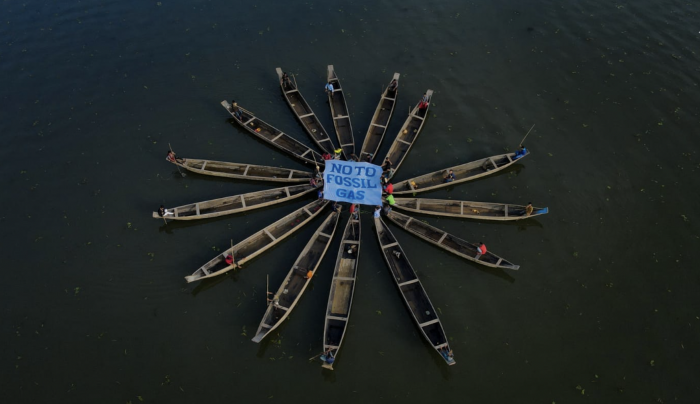
Photo: Sunamgonj’s Taherpur witnessed innovative climate protests. The climate strikers wanted to focus on the unique adaptation strategies of the people in the haor area (the wetland ecosystem in the northeastern part of Bangladesh). They created a flower-shaped boat with a sign reading “No to Fossil Gas.” In addition to exceeding the carbon budget and being more expensive than renewables, fossil gas is not a renewable resource.
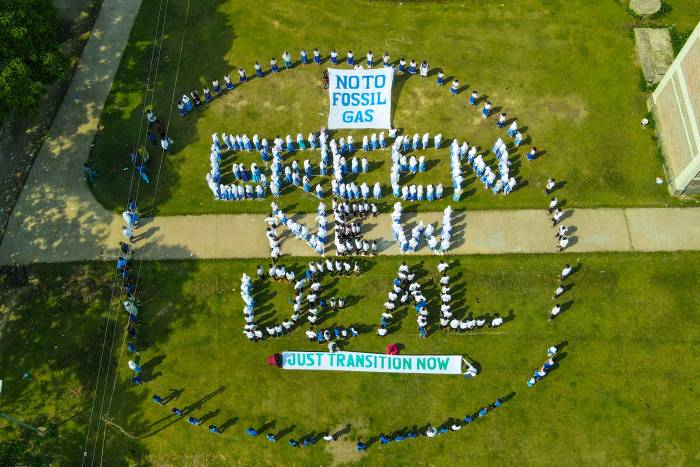
Photo: In Chatok Sunamonj, the children formed a human banner on the Green New Deal to support the Global Climate Strikes. They also voiced their support for community-owned renewable energy projects.
We participated in the Conference of Parties (COP 27), which took place in Sharm-El-Sheikh, Egypt, in November 2022.
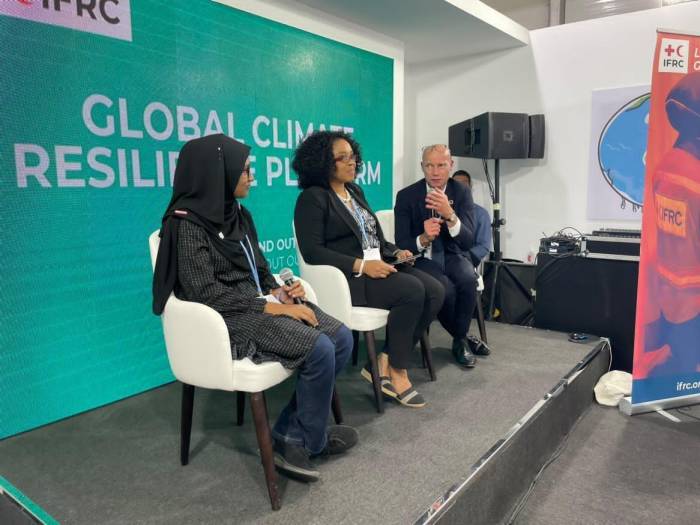
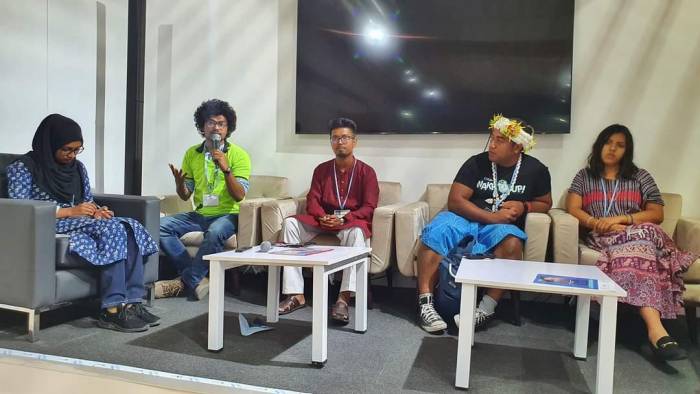
Photo: At COP 27, our youth partners in the Bangladesh pavilion organized a panel discussion. This is the first-ever youth-led session at the Bangladesh pavilion.
We ramped up the Green New Deal campaign by starting several online discussions with activists, journalists, and decision-makers. After our online discussions, we held two offline debates at United International University and Nilfamari.
On January 11th, 2023, we launched the Green New Deal Hub in Kustia. This is our second hub in Bangladesh, and together with the Green New Deal Hub in Satkhira, 350 Bangladesh continues to build momentum for a Green New Deal.
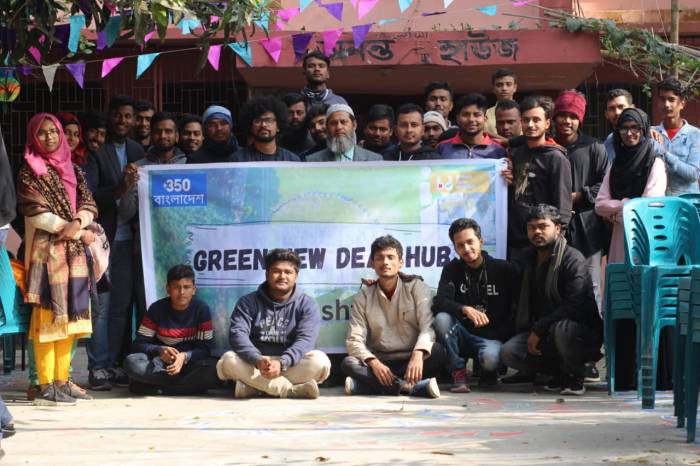
Photo: Opening of the Green New Deal Hub in Kustia
The Green New Deal Hub, Kustia, started to hit the ground running by holding capacity-building workshops among its volunteers and organizing climate classes in the local school.
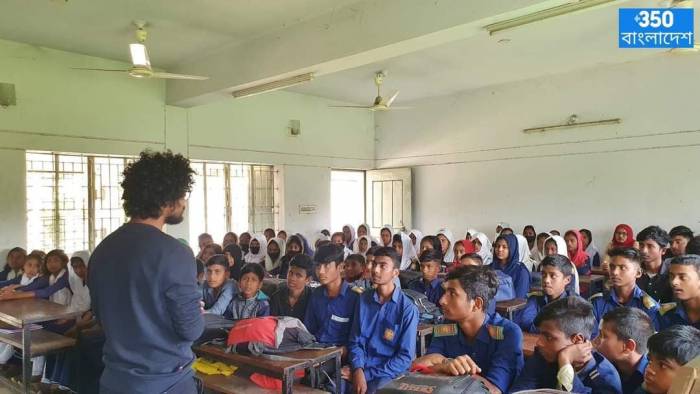
Photo: One hundred students from the school attended the program. The participants received an introductory climate literacy session and a Green New Deal learning session in the program.
Matarbari Campaign and Dirty Development film screening
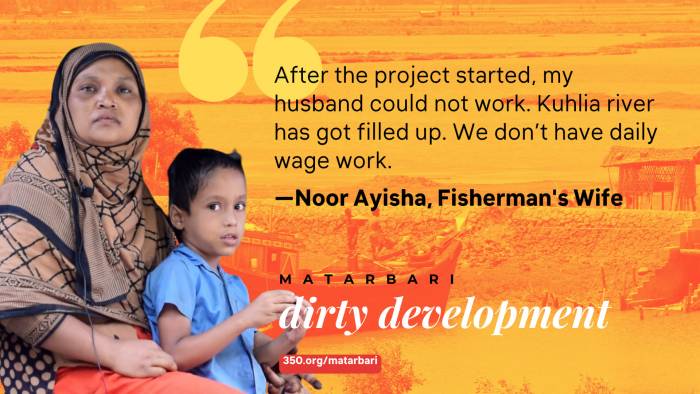
We released a 20-minute documentary film on Matarbari in December, where the under-construction coal plant that Japan is funding is already wreaking havoc on the community and the area’s delicate nature. You can watch the movie here and share the stories of Noor Ayisha and Abdul Jabbar. Then we did a screening tour in Bangladesh and screened the film in the local community in Rangamati and Mirpur Science College in Dhaka, followed by a discussion on Bangladesh’s energy policy.
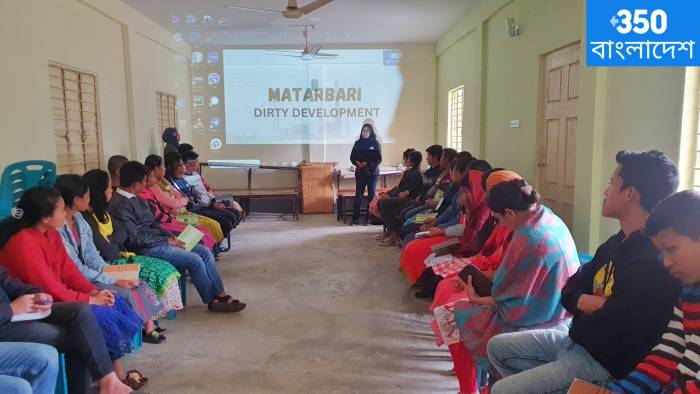
Photo: The documentary “Matarbari: Dirty Development” is being screened for the Indigenous population of Rangamati. The presentation was an effective tool for informing guests about the negative consequences of unsustainable development. The Mogban Union community in Rangamati currently deals with various environmental risks as tourism-based development expands quickly.
The Business Standard newspaper also featured our work. You can read the story here and share it with your friends.
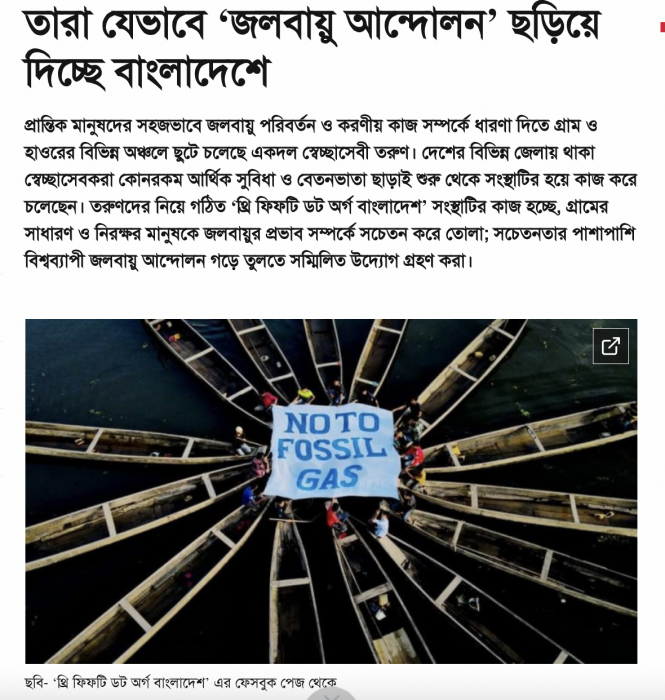
There are numerous additional methods to assist us with our work, such as joining a nationwide volunteer team. Register for our volunteer orientation call, and we’ll contact you for further information.